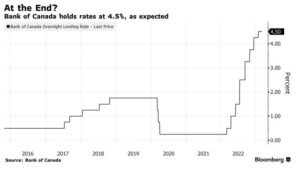
Approximately 20% of Canadians are self-employed, that’s about 7.9 million people. Making this an important segment in the mortgage and financing space. When it comes to self-employed individuals seeking a mortgage, there are some key things to note as this process can differ from the standard mortgage.
Qualifying for a Mortgage
In order to obtain a mortgage as a self-employed individual, most lenders require personal tax Notices of Assessment and respective T1 generals be included with the mortgage application for the previous two years. Typically, individuals who can provide this proof of income – and with acceptable income levels – have little issue obtaining a mortgage product and rates available to the traditional borrower.
Self-Employed Categories
- For those self-employed individuals who cannot provide the Revenue Canada documents, you will be required to put down 20% and may have higher interest rates.
- If you can provide the tax documents and don’t have enough stated income, due to write-offs, then you have to do a minimum of 10% down with standard interest rates.
- If you are able to put down less than 20% down payment when relying on stated income, the default insurance premiums are higher.
- If you can provide the tax documents, and you have high enough income, then there are no restrictions.
Documentation Requirements
For those individuals who are self-employed, you must provide the following, in addition to your standard documentation:
- For incorporated businesses – two years of accountant prepared financial statements (Income Statement and Balance Sheet)
- Two most recent years of Personal NOAs (Notice of Assessments) and tax returns
- Potentially 6-12 months of business bank statements
- Confirmation that GST/Source Deductions are current
Calculating Income
When it comes to calculating income for a self-employed application, lenders will either take an average of two years’ net income or your most recent annual income if it’s lower.
If you’re self-employed and looking to qualify for a mortgage, reach out to us at Primex Mortgages today! We can work with you to ensure you have the necessary documentation, talk about your options and obtain a pre-approval to help you understand how much you qualify for.
You can call us at 604-552-6190 or you can CLICK HERE to book a call with Trish!




